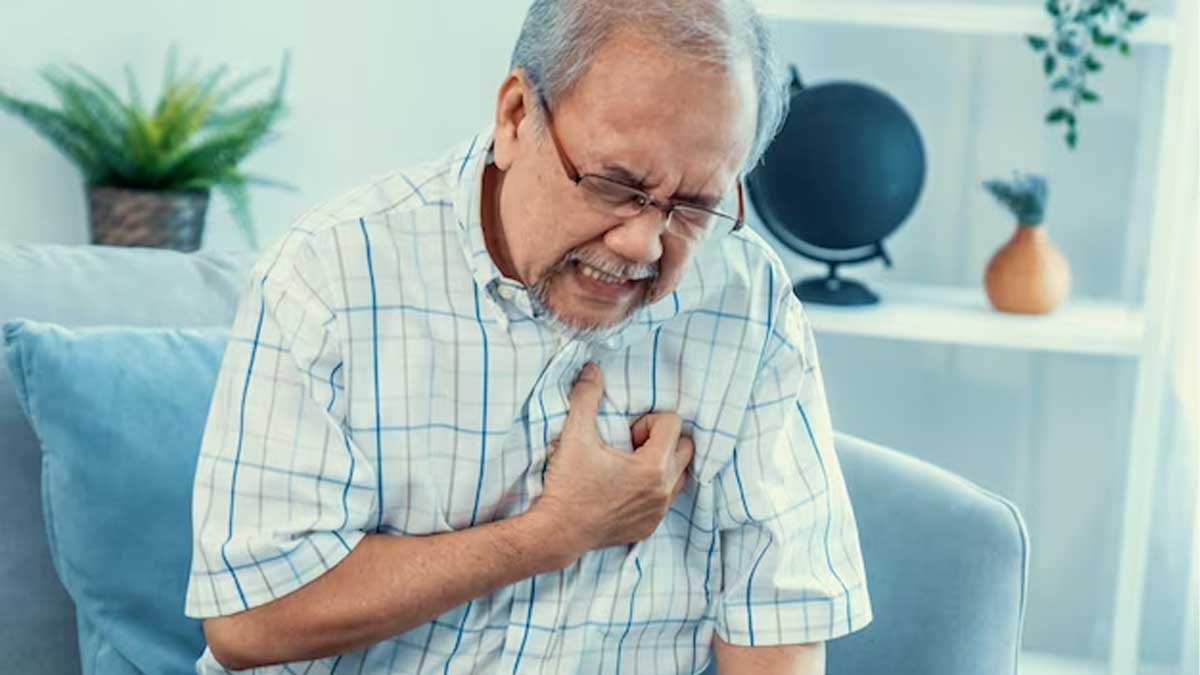
Chest pain is a prevalent clinical issue that often brings about anxiety, disability, and a significant disruption in the quality of life. The challenge lies in distinguishing between various conditions that contribute to chest pain, ranging from serious cardiovascular diseases to simpler musculoskeletal issues. Diagnosing chest pain is tricky because there isn't one clear rule to figure out the cause. We spoke to our expert Dr MS Aditya, Senior Consultant Interventional Cardiologist, Yashoda Hospitals, Hyderabad, who explained the cause and nature of chest pain and its connection with stress.
Determining the Cause

Evaluating relevant risk factors and the type and location of pain are common steps in the decision-making process. Here’s what Dr Aditya listed:
- Nature of Pain: Pricking, brief pain is unlikely to be cardiac-related, while pain intensifying with movement or bending is more likely due to musculoskeletal causes
- Cardiac Pain: It is characterised by a diffuse feeling, tightening of the chest, and associated symptoms, such as sweating, breathlessness, and palpitations
“While most conditions leading to chest pain are not life-threatening, recurrent discomfort or pain not relieved with simple strategies warrants further evaluation and diagnostics”, highlighted Dr Aditya.
Also Read: Expert Explains Possible Reasons For Chest Pain That You Should Not Ignore
Connection Between Stress and Chest Pain

Chest pain is a common association with stress and anxiety. In fact, the stress response is a combination of changes involving neurological and hormonal signaling. “Whenever the body perceives a challenge, a variety of responses are triggered at the subconscious level. These include the release of so-called stress hormones(adrenaline) and heightened neural activity, informed Dr Aditya.
Although these responses initially enhance the body's capacity to handle challenges, prolonged exposure becomes counterproductive, stressing the cardiovascular system.
According to HHS Public Access, approximately half of individuals with generalised anxiety disorder mention experiencing chest pain symptoms in their history. For many of these patients, this troubling symptom motivates them to seek prompt medical attention, often at the nearest emergency department.
Also Read: Impact Of Stress On Heart Health: Expert Explains How Stress Affects Your Heart
Stress-Induced Responses

- Increased Blood Pressure and Heart Rate: The rise in blood pressure and heart rate leads to increased oxygen demand from the heart which when not met, may lead to chest pain
- Muscle Tone: It leads to constant stress on bony attachments of the muscles leading to chronic pain, increased levels of stress, and heightened awareness of pain leading to further discomfort
Dr Aditya highlighted, “Chronic stress can lead to the accumulation of plaque in coronary arteries, paving the way for heart attacks and weakening of the heart.”
Strategies to Combat Stress

Dr Aditya listed some of the measures to combat stress as follows:
- Maintain Work-Life Balance: Striving for a balance between work and personal life is crucial to prevent burnout and fatigue
- Incorporate Relaxation Techniques: Include practices, such as yoga and meditation to promote mental clarity, reduce anxiety, and induce a sense of calm
- Healthy Lifestyle Choices: Opt for a proper diet, avoid alcohol and tobacco, and reduce tea and coffee intake
- Regular Exercise: Incorporate physical activity into your routine to improve your mood, reduce anxiety, and enhance overall resilience to stress.
- Family Time: Spend quality time with loved ones to foster positive emotions and cope with stress more effectively.
[Disclaimer: This article contains information provided by a registered healthcare professional and is for informational purposes only. Hence, we advise you to consult your expert if you notice any health-related complications.]







